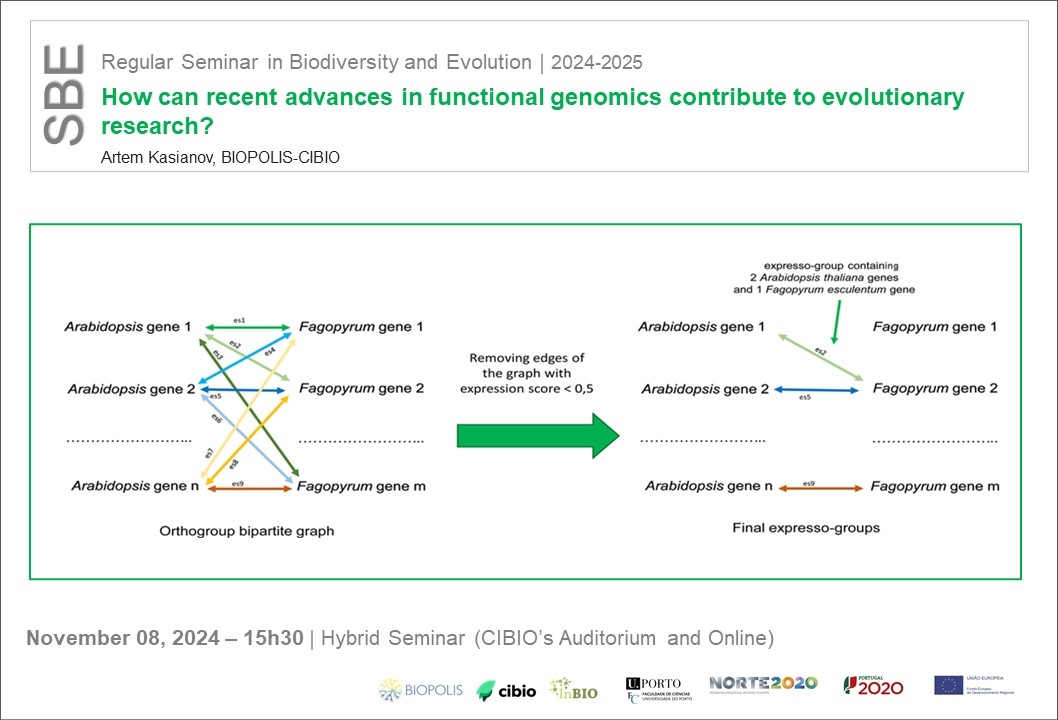How can recent advances in functional genomics contribute to evolutionary research?
Event
REGULAR SEMINAR IN BIODIVERSITY AND EVOLUTION
November 08th, 2024
Artem Kasianov, BIOPOLIS-CIBIO | 15h30 | Hybrid Seminar

REGULAR SEMINAR IN BIODIVERSITY AND EVOLUTION
Over the last two decades, advances in high-throughput sequencing technologies have dramatically increased the number of available whole-genome sequences across diverse species and expanding opportunities for population-level genomic studies. This wealth of genomic data has proven invaluable for evolutionary research. At the same time, the functional genomics field has surged forward with innovative sequencing-based tools—such as RNA-seq, ChIP-seq, Hi-C, and bisulfite sequencing—that offer insights into the functional roles of genes, regulatory elements, and other genomic features. These datasets create an additional layer of information that complements genomic sequences, providing new dimensions to evolutionary investigations.
Here, I present two methodologies for utilizing these enhanced datasets in evolutionary studies to uncover findings at both macroevolutionary and microevolutionary scales. The first approach underpins the development of the tool ISSEML, which facilitates interspecies comparisons of gene expression profiles and helps explore neofunctionalization and subfunctionalization events during speciation. The second one emphasizes using pathway data as a framework for identifying positive selection events across evolutionary lineages.
Artem Kasianov is an auxiliary researcher in the Evolutionary Approaches to Human Genetic and Cultural Diversity group at BIOPOLIS-CIBIO. He began his bioinformatics career by participating in numerous genome and transcriptome assembly projects across a wide range of species, including Shepherd's Purse (Capsella bursa-pastoris), buckwheat (Fagopyrum esculentum), medicinal leech (Hirudo medicinalis), land snail (Helix lucorum), and grey whale (Eschrichtius robustus). These genome assembly projects, often driven by evolutionary questions, quickly sparked his interest in evolutionary studies. Now Artem’s scientific interests concentrated on studying population history of the humans living along the Okavango River Basin and southern Africa and developing new bioinformatic algorithms and approaches for advancing the human population genetics studies.
[Host: Anne Maria Fehn, Human Evolutionary Genetics - HUMANEVOL]
